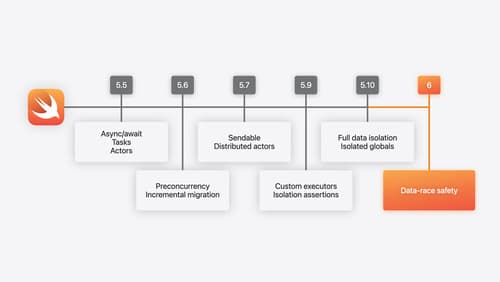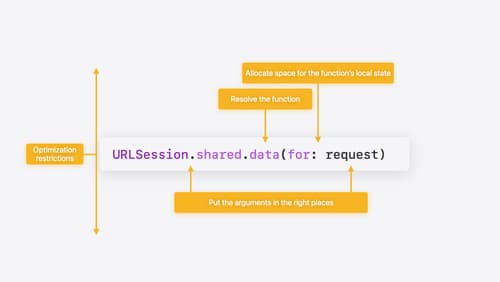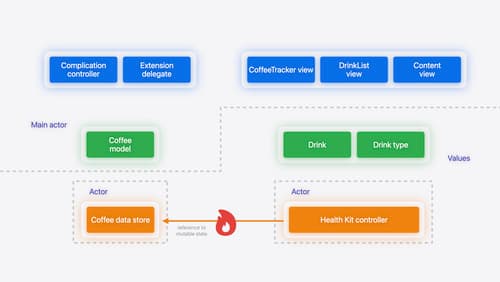why does python take a long time to start up?
Asked on 2024-07-30
1 search
Python's startup time can be influenced by several factors, similar to the issues discussed in various WWDC sessions about app performance and launch times. Here are some relevant points from the context provided:
-
Initialization of Global Variables:
- In languages like C and Objective-C, global variables are initialized at startup, which can significantly slow down the launch time. Swift avoids this by using lazy initialization, which initializes variables on first use (Migrate your app to Swift 6).
-
CPU Usage and Execution Time:
- High CPU usage and long execution times during the initial launch can cause delays. Tools like the Time Profiler in Xcode can help diagnose these issues by visualizing CPU usage and identifying long hangs during startup (What’s new in Xcode 16).
-
Loading Assets and Parallelization:
- Loading assets serially on the main thread can cause significant delays. Parallelizing the loading process and moving execution to the background can improve startup times (What’s new in Xcode 16).
-
Build and Debugging Processes:
- Implicit steps in the build process, such as building binary versions of modules, can lead to slowdowns. Making these steps explicit and enabling parallel builds can result in more predictable and faster builds (What’s new in Swift).
-
Performance Tools:
- Using performance tools like Instruments in Xcode can help identify and address performance bottlenecks, including slow app launches and excessive disk writes (What’s new in Xcode 16).
In summary, Python's startup time can be affected by similar factors such as initialization of global variables, CPU usage, asset loading, and build processes. Using appropriate tools to diagnose and optimize these aspects can help improve startup performance.

What’s new in Swift
Join us for an update on Swift. We’ll briefly go through a history of Swift over the past decade, and show you how the community has grown through workgroups, expanded the package ecosystem, and increased platform support. We’ll introduce you to a new language mode that achieves data-race safety by default, and a language subset that lets you run Swift on highly constrained systems. We’ll also explore some language updates including noncopyable types, typed throws, and improved C++ interoperability.

Explore Swift performance
Discover how Swift balances abstraction and performance. Learn what elements of performance to consider and how the Swift optimizer affects them. Explore the different features of Swift and how they’re implemented to further understand the tradeoffs available that can impact performance.

Migrate your app to Swift 6
Experience Swift 6 migration in action as we update an existing sample app. Learn how to migrate incrementally, module by module, and how the compiler helps you identify code that’s at risk of data races. Discover different techniques for ensuring clear isolation boundaries and eliminating concurrent access to shared mutable state.
